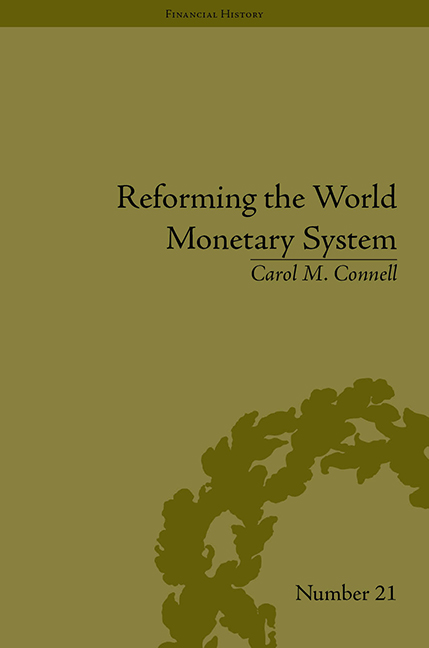Book contents
- Frontmatter
- Contents
- Acknowledgements
- List of Figures and Tables
- Introduction
- 1 A Crisis in Confidence
- 2 Fritz Machlup, his Research and Methodology
- 3 Robert Triffin and the Triffin Plan
- 4 William Fellner and the Intersection of Macro and Microeconomics
- 5 Why Economists Disagree: The Role of Framing in Consensus Building
- 6 ‘Assuring the Free World's Liquidity’ through Multiple Reserve Currencies
- 7 Milton Friedman and the Arguments for Flexible versus Fixed Exchange Rates
- 8 Collaboration with the Group of Ten
- 9 Adjustment Policies and Special Drawing Rights: Joint Meetings of Officials and Academics
- 10 From the Bellagio Group to the Bürgenstock Conferences
- 11 From the Bellagio Group and Joint Conferences of Officials and Academics to the Group of Thirty
- 12 Reassessing the Bellagio Group's Impact on International Monetary Reform
- 13 The Impact of the Bellagio Group on International Trade and Finance Scholarship from the 1960s to the Present
- Conclusions
- Notes
- Works Cited
- Index
12 - Reassessing the Bellagio Group's Impact on International Monetary Reform
- Frontmatter
- Contents
- Acknowledgements
- List of Figures and Tables
- Introduction
- 1 A Crisis in Confidence
- 2 Fritz Machlup, his Research and Methodology
- 3 Robert Triffin and the Triffin Plan
- 4 William Fellner and the Intersection of Macro and Microeconomics
- 5 Why Economists Disagree: The Role of Framing in Consensus Building
- 6 ‘Assuring the Free World's Liquidity’ through Multiple Reserve Currencies
- 7 Milton Friedman and the Arguments for Flexible versus Fixed Exchange Rates
- 8 Collaboration with the Group of Ten
- 9 Adjustment Policies and Special Drawing Rights: Joint Meetings of Officials and Academics
- 10 From the Bellagio Group to the Bürgenstock Conferences
- 11 From the Bellagio Group and Joint Conferences of Officials and Academics to the Group of Thirty
- 12 Reassessing the Bellagio Group's Impact on International Monetary Reform
- 13 The Impact of the Bellagio Group on International Trade and Finance Scholarship from the 1960s to the Present
- Conclusions
- Notes
- Works Cited
- Index
Summary
Introduction
There are significant parallels between the calls for monetary system reform in the 1960s and those for reform following the financial crisis of 2008–9. Efforts at reform continue into 2012. The system attributes (gold versus fiat, fundamentally fixed versus managed floating) are different, as is the size of the deficits, from 1 per cent or less in 1960 to over 10 per cent of GDP in the aftermath of the 2008–9 financial crisis. While no attempt has been made to revisit the numbers, the question of confidence in the system and the credibility of policymaker response has been everywhere in this book.
Whatever the value of hindsight provided by ex post analysis, there is no question that many policymakers and academic economists in the UA and Europe perceived a potential crisis for the dollar. Europe was already deeply engaged in building an external monetary policy to end dependency on the USA and the US dollar as the pivotal international currency, which involved reforming the international monetary system to base it on a neutral, non-dollar standard. Some of the same economists who would become important to international monetary system reform as members of the so-called Group of thirty-two non-governmental economists (the Bellagio Group) were also involved in European integration, including Jacques Rueff, monetary economist and close adviser to French President Charles de Gaulle, and Pierre Uri, among the French; German economists Herbert Giersch, member of the Kiel Institute of World Economics, and Egon Sohmen; Belgian economists Alexandre Lamfalussy and Robert Triffin.
- Type
- Chapter
- Information
- Reforming the World Monetary SystemFritz Machlup and the Bellagio Group, pp. 185 - 200Publisher: Pickering & ChattoFirst published in: 2014



